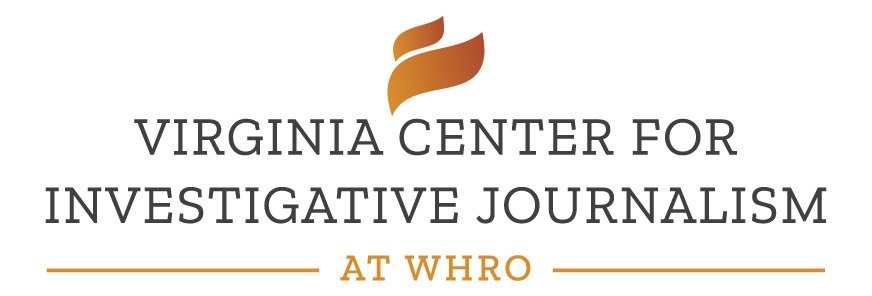In the quiet, in-between moments, though, I could feel living history all around me, breathing on my neck. Every artifact, every shadow was whispering about the past, saying it was “present.” This little collection of images is my diary of those feelings. It is open to your interpretation - how do you see your place in the history we make today?
Read moreDavid Braxton, 45, has spent nearly half his life behind bars in Virginia prisons. The Covid-19 pandemic has added another threat to the state's overcrowded prison system, with more than 5,000 prisoners testing positive for the virus. Braxton, at Augusta Correctional Center, says the crisis has put inmates on edge.
Read moreSouthwest Virginia once voted reliably Democratic, and its transition to clean-sweep Republican within a generation demonstrates the partisan realignment that Trump accelerated, and which the 2020 election looks set to entrench for another generation.
Read moreIn 2016, the only age group to see an increase in the percentage of voters was youth aged 18-29. Still, this group lagged far behind all other age groups. Only 46.1% of eligible voters in this age demographic voted according to the US Census Bureau.
VCIJ asked a dozen first-time voters in a presidential election to share what is motivating them to vote in Virginia during this election cycle. They also share what issues they care about, how they get their information and why they feel voting is important.
Read moreGaps in farmworker protections elevate covid risks for Virginia’s migrant workers.
More than 10,000 migrant farmers travelled to Virginia this year during the deadly pandemic to plant and harvest crops at more than 250 Virginia farms and orchards, according to the Virginia Employment Commission (VEC). Despite the health crisis, the influx of migrants this year changed little from previous harvests, according to VEC estimates.
The immigrant workers -- overwhelmingly Latino -- drive one of the commonwealth’s key industries. Now, they face some of the greatest risks of covid infection through crowded work and living conditions.
Read moreEliana Nachman, 18, is a recent graduate of Hermitage High School in Henrico, VA, and has been accepted to Mary Washington University this fall, where classes start on Aug. 24.
The university initially planned a hybrid of online and in-person instruction to minimize the risk of spreading the coronavirus. But as infections grew, the university announced on Aug. 13 that classes would be entirely online until at least mid-September.
The pandemic has upended a year full of promise for Nachman and her friends: “I was hoping it would kind of be all wrapped up by August. I guess I was just being naive.”
Read moreA statue can come down in a day. Dismantling an unjust system takes much longer
The case of Travion Blount illustrates how Virginia’s juvenile justice system can throw away the lives of teen offenders.
Read moreThe coronavirus paradox of rural Virginia — Bath County has no confirmed COVID-19 cases, yet the unemployment rate soared to a state-high 20.5% in April, before dropping back to 15.8% in May. State-ordered pandemic restrictions have stirred community tensions in a region already burdened with decades of job losses and population decline.
Read morePublic and private mental health care providers in Virginia say they have been forced to change not only the ways they offer certain services to patients, but also whether they offer them at all. The virus has upended care across state facilities, which serve more than 200,000 Virginians every year
Read moreA review of dozens of school policies by the Virginia Center for Investigative Journalism revealed incomplete or inconsistent rules for guarding student data, despite a 2015 state law enhancing protections. Many district policies appeared to be based on 50-year-old state guidelines originally intended to protect information about student health and report cards
Read moreVirginia school administrators say they are struggling to provide mental health services during the coronavirus pandemic, even as vulnerable students continue with online studies away from regular counseling and support.
As school systems move to virtual learning, school counseling resources, deemed critical to student wellness by the U.S. Department of Education, are unable to provide in-person therapy for high-risk students. The alternative treatments -- online sessions or new therapists from community services boards -- could fall short in continuing care and supporting students during the pandemic, mental health professionals say.
Read moreRichmond, Virginia’s public housing agency is working to demolish public housing while excluding the public from any input in the process.
In response to a request through the state public records law to issue meeting schedule, the agency left out a critical meeting. In response to another request for public comments the agency received, the agency excluded comments that were especially damning.
Read moreEver get the feeling that your local government agency is hoping you just go away?
That certainly seems to be the case with the Richmond Redevelopment and Housing Authorityin Virginia. Over the last six months, prying event basic information about plans to demolish its existing public housing in favor of an entirely voucher-based system has been an exercise in futility. By the time you get the document, you’re too late.
The agency began the year by quietly announcing its plans to demolish the very thing they’re supposed to provide - housing.
Read moreA detailed web of PDFs released in response to a request for the Virginia Department of Emergency Management’s nuclear disaster response plans contains hundreds of pages of information about how the Commonwealth will handle a nuclear emergency, ranging from meltdown to dirty bomb to accidental weapon explosion.
Read moreOver 100 wells on and near military bases in Virginia exceeded federal safety guidelines for contamination by toxic, firefighting chemicals used widely in Navy and Air Force training, according to military documents.
The chemicals are found in a foam used by military and civilian firefighters to train and douse high-octane fires for more than 50 years. The foam is still being used, even as the military says it is phasing it out.
Read more










